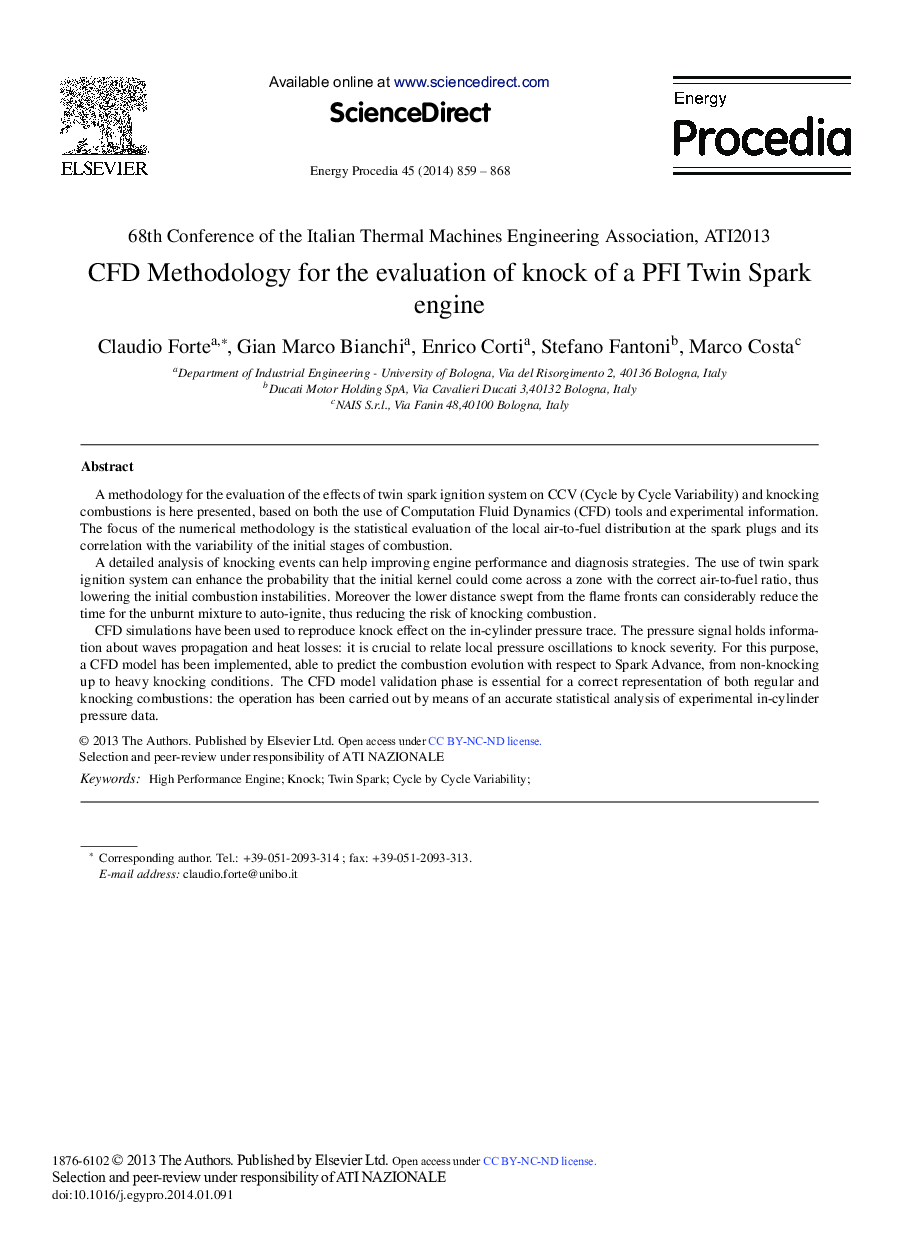| Article ID | Journal | Published Year | Pages | File Type |
|---|---|---|---|---|
| 1512055 | Energy Procedia | 2014 | 10 Pages |
A methodology for the evaluation of the effects of twin spark ignition system on CCV (Cycle by Cycle Variability) and knocking combustions is here presented, based on both the use of Computation Fluid Dynamics (CFD) tools and experimental information. The focus of the numerical methodology is the statistical evaluation of the local air-to-fuel distribution at the spark plugs and its correlation with the variability of the initial stages of combustion.A detailed analysis of knocking events can help improving engine performance and diagnosis strategies. The use of twin spark ignition system can enhance the probability that the initial kernel could come across a zone with the correct air-to-fuel ratio, thus lowering the initial combustion instabilities. Moreover the lower distance swept from the flame fronts can considerably reduce the time for the unburnt mixture to auto-ignite, thus reducing the risk of knocking combustion.CFD simulations have been used to reproduce knock effect on the in-cylinder pressure trace. The pressure signal holds informa- tion about waves propagation and heat losses: it is crucial to relate local pressure oscillations to knock severity. For this purpose, a CFD model has been implemented, able to predict the combustion evolution with respect to Spark Advance, from non-knocking up to heavy knocking conditions. The CFD model validation phase is essential for a correct representation of both regular and knocking combustions: the operation has been carried out by means of an accurate statistical analysis of experimental in-cylinder pressure data.
